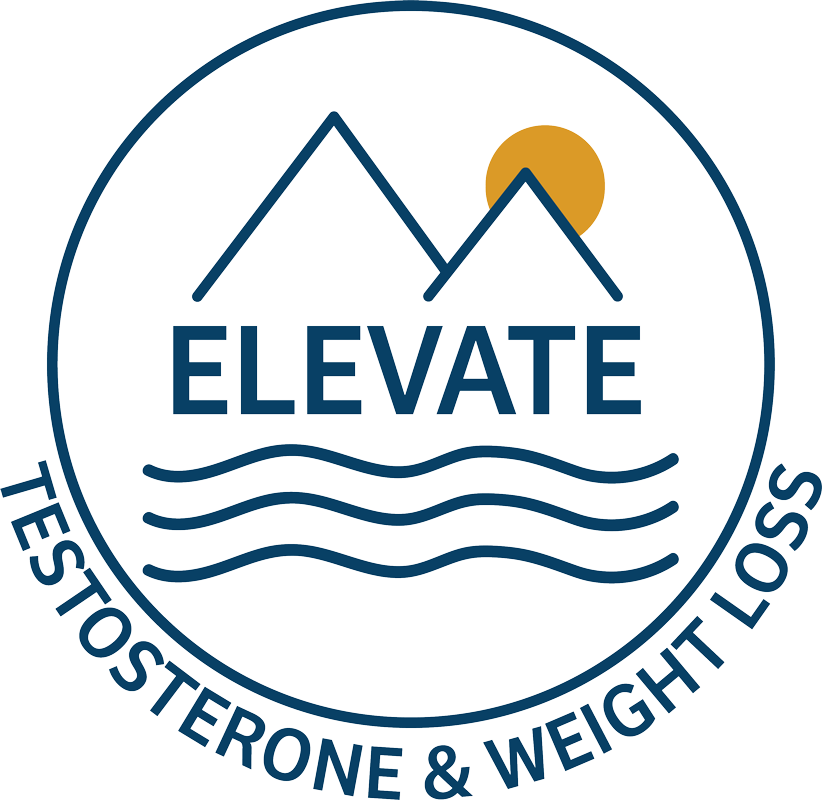- 15 W Jefferson St. Suite 3 Oswego , Il 60543
Feeling Drained, Unmotivated, or
Stuck in a Plateau?
You’re not alone—Elevate Testosterone & Weight Loss offers science-backed Peptide Therapy designed to naturally boost your hormones, build lean muscle, and accelerate fat loss.

Why Peptide Therapy?
Because Optimization Isn’t Just for Athletes
If you’re struggling with low energy, slow metabolism, poor recovery, or stubborn fat—your body may not be producing the peptides it needs to thrive. At Elevate Testosterone & Weight Loss, we use targeted peptide therapies that signal your body to naturally increase human growth hormone (HGH), improve cellular repair, and ignite real, lasting fat-burning potential.
Whether your goals are to lose weight, improve sleep, increase strength, or support hormone balance—peptides can help you unlock results your body has been missing.
Smart, Targeted Fat Loss
Enhances metabolism and reduces stubborn belly fat—especially when combined with proper nutrition and movement.
Lean Muscle & Recovery
Build strength more efficiently and recover faster after workouts or physical stress.
More Energy, Naturally
Clients often report better focus, motivation, and daily energy within weeks of treatment.
How it Works
Getting started with peptide therapy is simple, science-based, and fully personalized. We tailor your treatment around your unique health profile and goals—no guesswork, no cookie-cutter plans.
1. Treatment Overview
2. Peptide Therapy Benefits
3. Are You A Good Candidate?
Peptide Therapy Overview
Peptide therapy uses medically prescribed amino acid chains to naturally stimulate your body’s own growth hormone production and cellular repair processes. These peptides—such as Sermorelin, CJC-1295, NAD+, Ipamorelin, BPC-157, and others—help restore hormonal balance, support metabolism, and accelerate healing.
Your treatment may include injectable or oral peptide protocols, always guided by lab work and monitored for safety and effectiveness.
- CJC-1295/Ipamorelin – for HGH stimulation, fat loss, muscle tone, and sleep improvement
- Sermorelin – supports natural HGH production, enhances recovery, improves sleep, and aids in fat metabolism
- NAD+ – boosts cellular energy, supports brain function, promotes anti-aging, and improves metabolic efficiency
- BPC-157 – for faster recovery, gut health, and inflammation support
- PT-141 – for enhanced libido and sexual wellness
- Thymosin Alpha-1 – for immune support and cellular repair

Benefits of Peptide Therapy
Fat Loss & Metabolic Boost
Peptides help stimulate natural growth hormone production, accelerating fat metabolism and reducing stubborn weight.
Lean Muscle Preservation
Support muscle development and maintenance even while in a calorie deficit, making body recomposition more achievable.
Enhanced Recovery
Reduce inflammation and promote faster healing from exercise, injury, or physical stress with recovery-focused peptides.
Improved Sleep Quality
Certain peptides promote deeper, more restorative sleep, allowing your body to recover and regenerate overnight.
Hormonal Balance
Peptide therapy supports the endocrine system, helping regulate testosterone, growth hormone, and other key hormones.
Increased Libido & Vitality
Specific peptides enhance sexual function, improve blood flow, and increase overall energy and performance.
Peptide therapy is ideal for individuals looking to restore balance, optimize their body’s natural processes, and achieve lasting results in energy, weight, recovery, and performance. It’s not just for elite athletes or aging adults—peptides can benefit anyone whose body may no longer be functioning at its peak. Whether you’re battling chronic fatigue, slow metabolism, or poor recovery, peptide therapy offers a science-backed, targeted approach to help you feel and perform your best.
- Struggle with persistent fatigue or low energy levels
- Experience difficulty losing fat despite healthy habits
- Suffer from poor sleep quality or frequent sleep disruptions
- Deal with slow recovery from exercise or physical strain
- Have low libido or decreased sexual performance
- Show signs of hormonal imbalances or age-related decline
Frequently Asked Questions
Peptide therapy uses short chains of amino acids (peptides) that act as messengers in the body to promote healing, hormonal balance, and improved cellular function. These peptides can:
Stimulate natural hormone production
Support immune system function
Improve metabolism and weight management
Aid in tissue repair and regeneration
Enhance mental clarity and focus
By mimicking the body’s natural processes, peptide therapy can help optimize overall health.
Peptide therapy is highly versatile and may help with:
Hormonal imbalances (like low testosterone or growth hormone)
Weight gain or difficulty losing weight
Fatigue and low energy
Decreased libido or sexual function
Brain fog and memory issues
Slow healing and recovery after injury
Aging concerns such as skin laxity and muscle loss
Treatment plans are tailored to individual health goals and symptoms.
Peptides are typically administered in one of the following ways:
Subcutaneous injection: The most effective and common method, injected into the fatty layer under the skin.
Oral capsules: Convenient, but not all peptides are effective when taken orally.
Topical creams: Applied to the skin for localized use.
Nasal sprays: Used for peptides that target the brain or central nervous system.
The method depends on the specific peptide and the condition being treated.
When prescribed by a qualified provider, peptide therapy is generally safe. Most peptides are bioidentical to what your body naturally produces. However, some mild side effects can occur, such as:
Redness or irritation at the injection site
Nausea or upset stomach
Headaches
Mild fatigue
Regular check-ins with your provider ensure safe and effective use.
Results vary depending on the individual and the type of peptide being used. In general:
Short-term results like better sleep, improved mood, and energy may be noticeable within a few weeks.
Long-term benefits such as fat loss, muscle gain, improved skin, and hormonal balance may take several months.
Consistency and adherence to your plan play a major role in success.
You may be a good candidate for peptide therapy if you:
Are experiencing signs of hormonal decline or imbalance
Have trouble losing weight or gaining muscle
Suffer from poor recovery after workouts or injuries
Struggle with fatigue, low libido, or brain fog
Are looking to support anti-aging and longevity
A thorough health evaluation helps determine if peptide therapy is right for you.
Most people tolerate peptide therapy well, but some may experience:
Injection site redness or swelling
Temporary fatigue or drowsiness
Mild nausea
Headaches
Rarely, more serious effects may occur, which is why regular monitoring by a healthcare professional is important.
